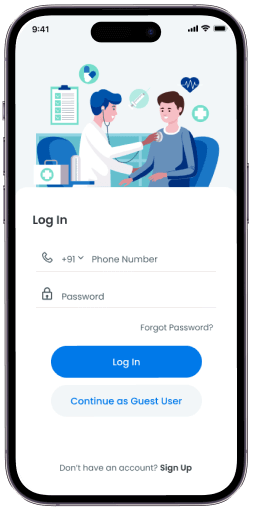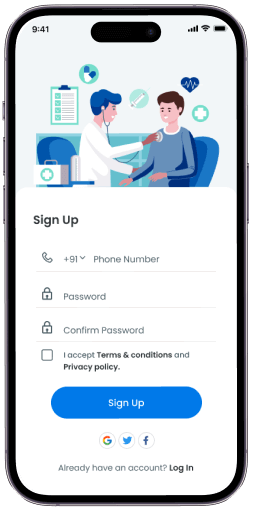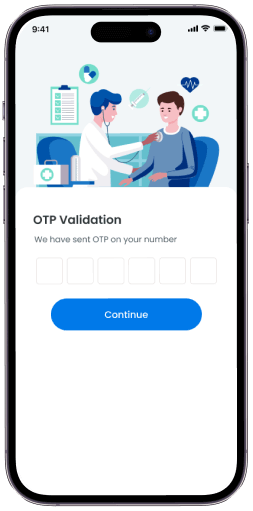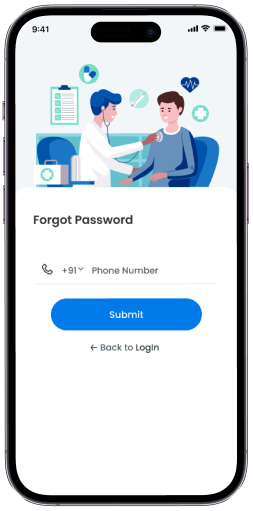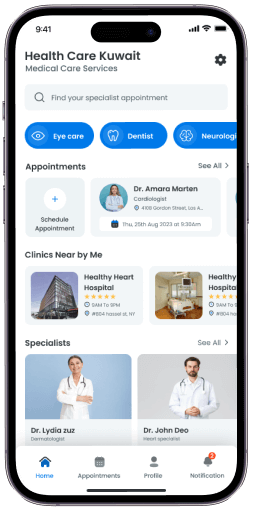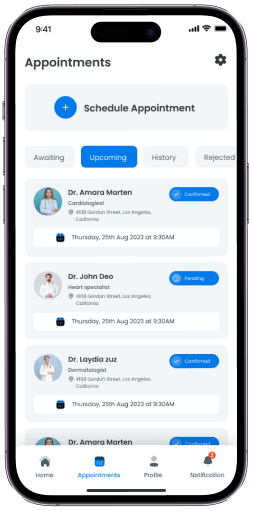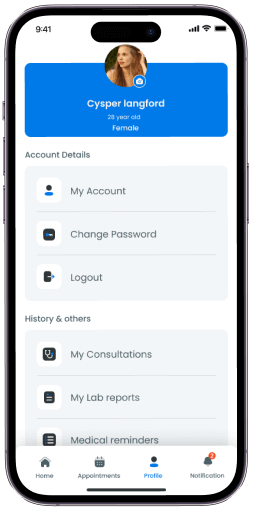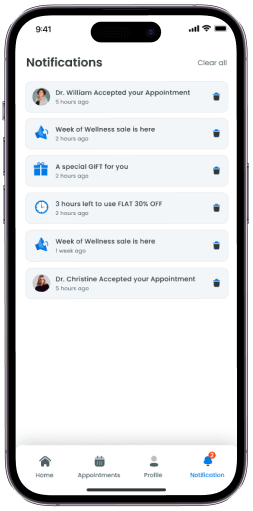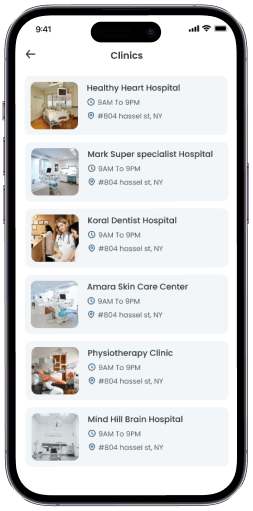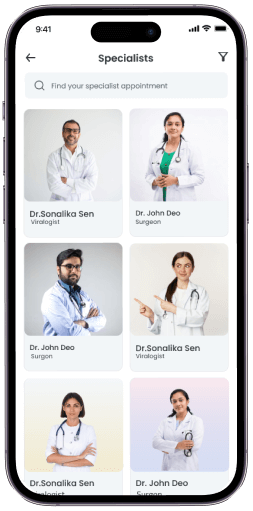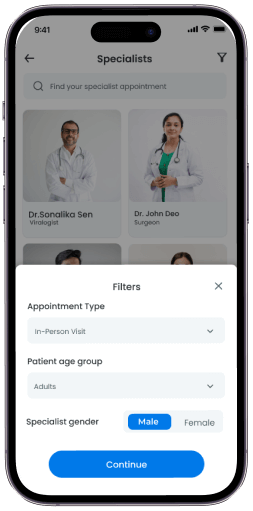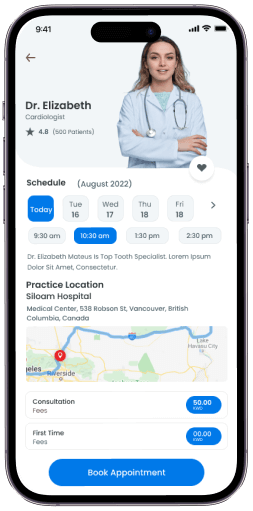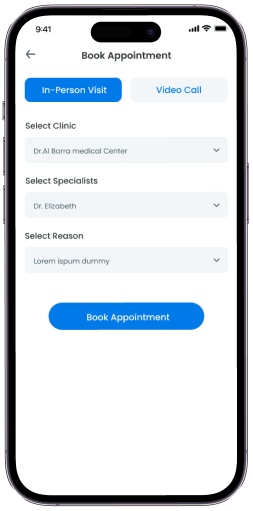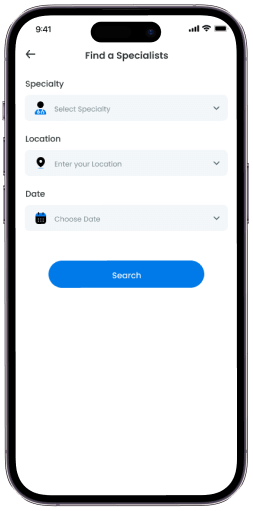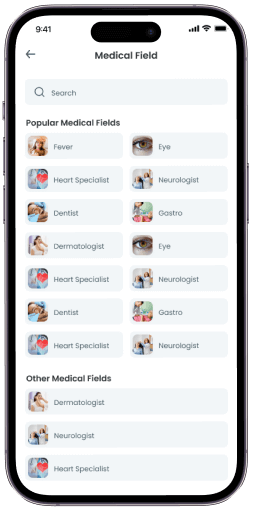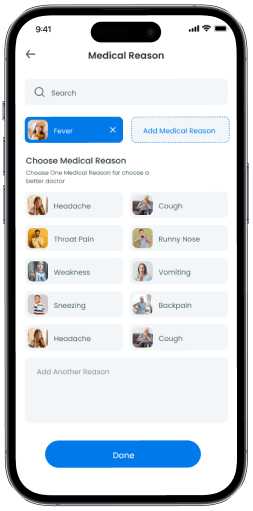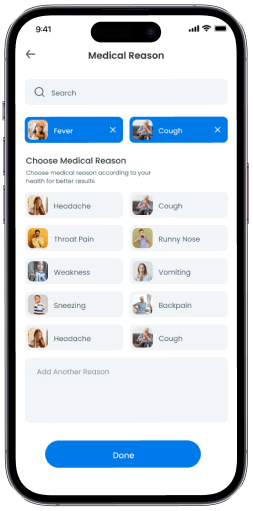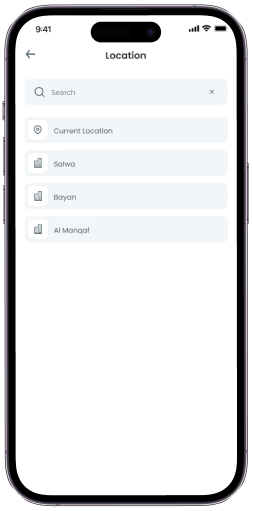Health Care App
(Personal Project)The Health care mobile application is designed to book appointments with doctors and maintain health records. The online booking system and online consultation options help save time for both patients and doctors. This app can offer features like appointment scheduling, online consultation through message or video call and overall health management. They also facilitate healthcare providers in delivering more efficient and patient-centered care.
The problem
These days, everybody is busy in their lives, and they don't want to waste their time waiting in queues. Sometimes, they skip visiting a medical center or consulting a doctor for health issues. It is especially challenging for elderly people to visit the doctor every day to seek health advice. Sometimes, they may choose the wrong doctor for their problem because they lack the option to find popular doctors in their area. This project represents the common problem of inefficiency and inconvenience in the healthcare system, highlighting the need for a more accessible and streamlined approach to medical consultations and health management.
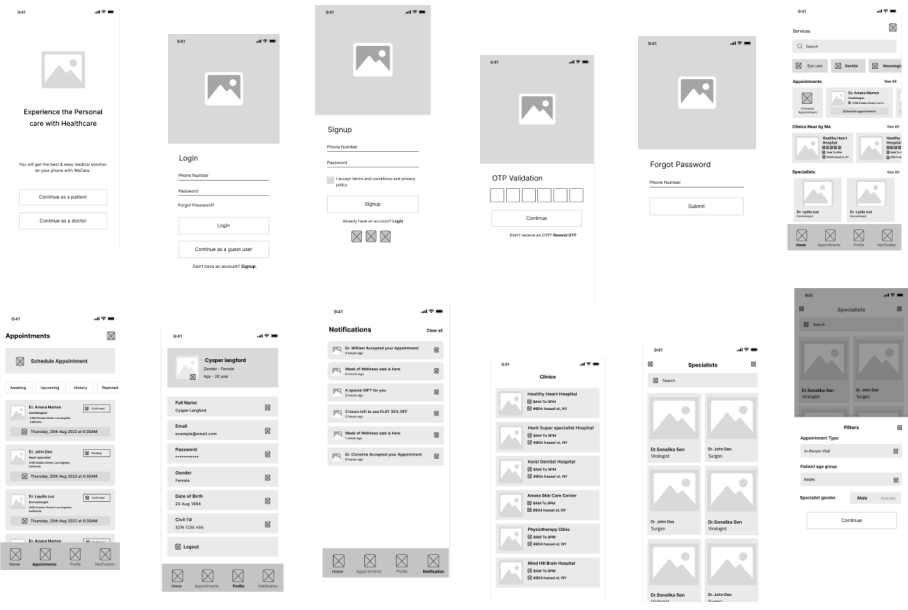
The Solution
The Healthcare app is created to help people book appointments and find specialists for their health needs. It's especially useful for old age people who need regular doctor's advice but can't easily visit a medical center. They can connect with their doctors through video calls. Health-conscious young users can also use the app to track fitness activities and get expert advice to stay fit. By implementing the design thinking process—empathizing with users through interviews and surveys, defining user personas, ideating with brainstorming sessions, prototyping, and conducting usability testing—this project created a solution that effectively meets the needs and preferences of its users.
Timeline: 10 Weeks
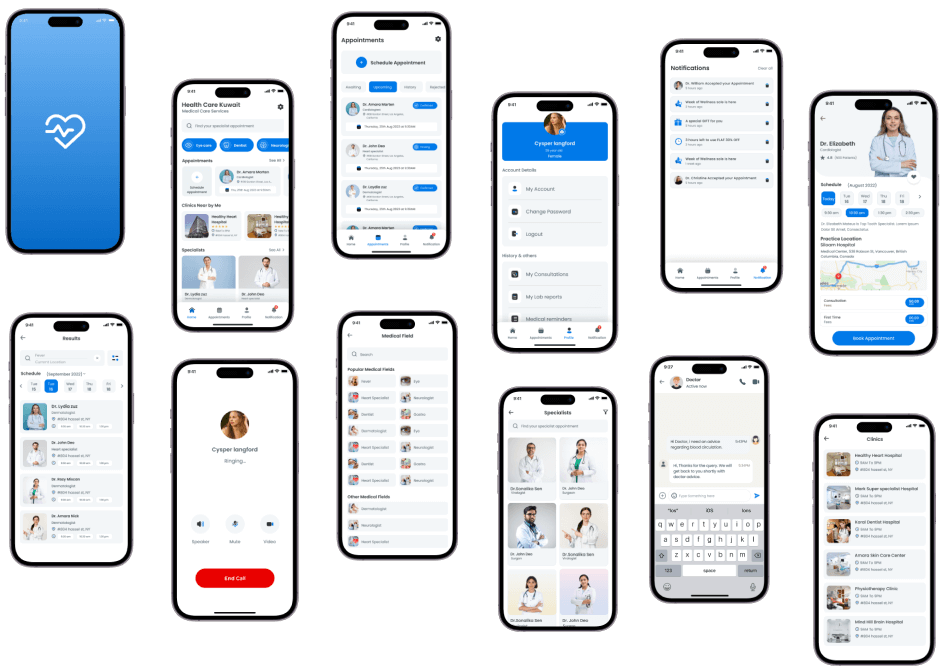
The Result
The Hi-fi prototype of the Healthcare app has resulted in more efficient and patient-centered care delivery. The app's user-friendly interface and robust features have significantly reduced the need for in-person visits, saving time for both patients and doctors. The project's success was validated through extensive usability testing, which highlighted high user satisfaction and improved usability. Key learnings from the project included the importance of combining qualitative and quantitative research, mastering new UX techniques, and effectively transitioning from low-fidelity to high-fidelity prototypes. Overall, this project demonstrates how innovative digital solutions can transform healthcare delivery, making it more accessible and convenient for a wide range of users, particularly the elderly and those with busy lifestyles.


